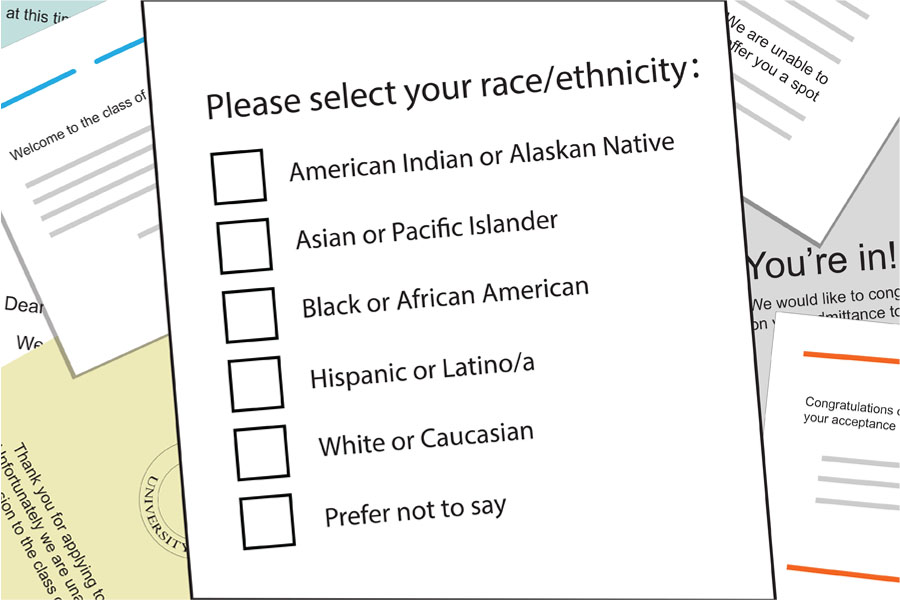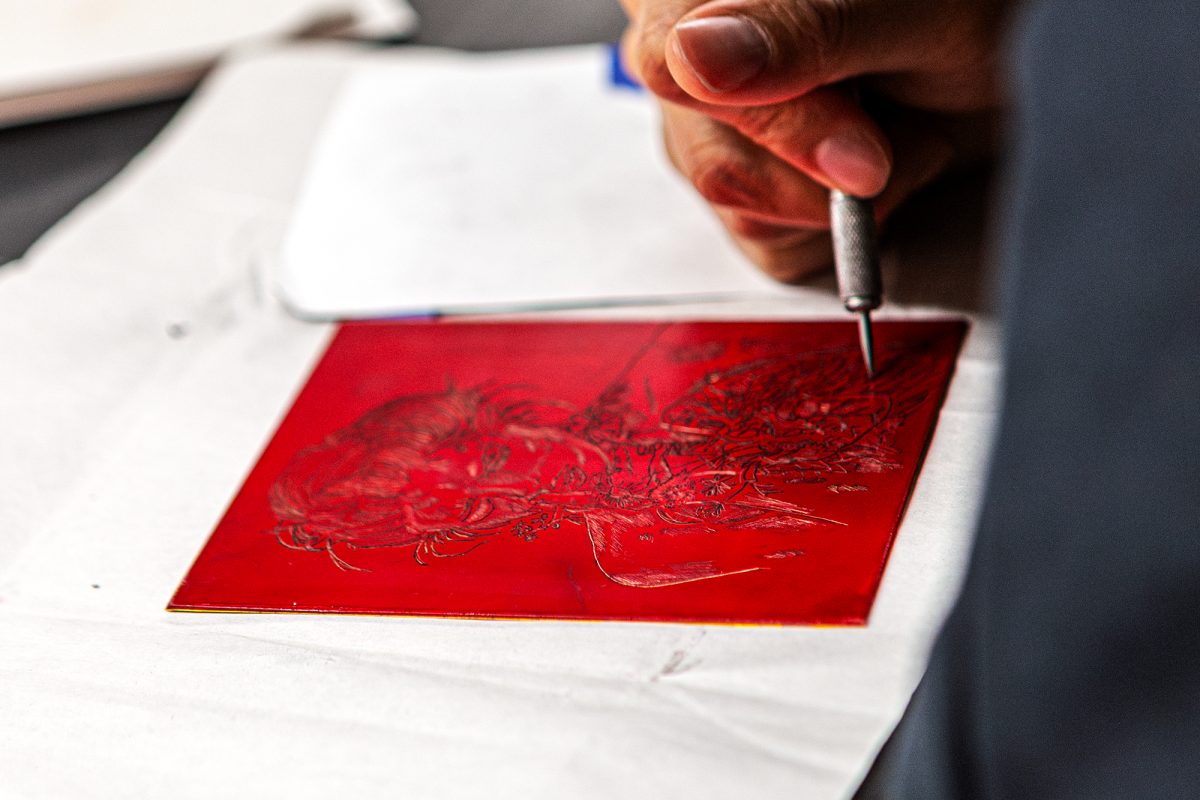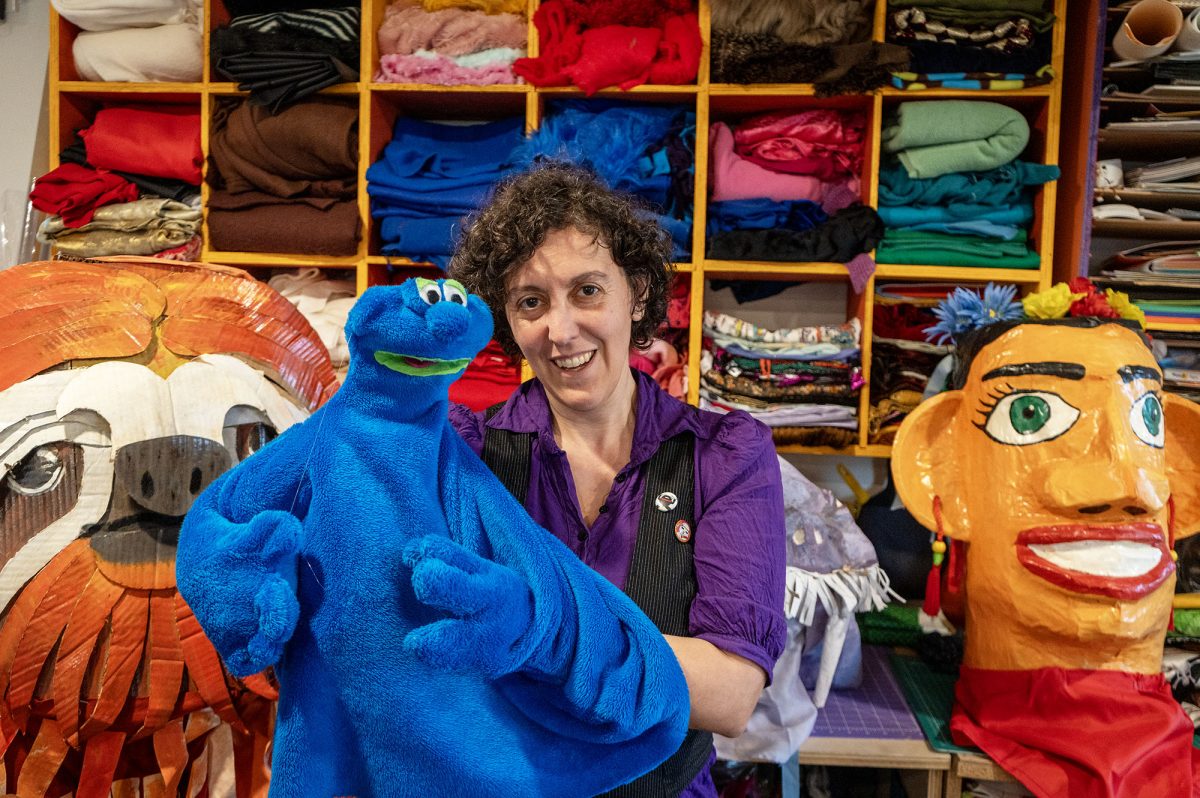After years of intense debate about affirmative action’s place in higher education, the Supreme Court overruled the use of such policies June 29. While Ithaca College does not have affirmative action policies, some students have expressed concern about the impact of the court’s decision.
In Students for Fair Admissions Inc. v. President and Fellows of Harvard College, the Supreme Court ruled that affirmative action programs at Harvard and the University of North Carolina at Chapel Hill were unconstitutional in a 6-3 vote against the University of North Carolina at Chapel Hill and 6-2 against Harvard. Enacted in 1961, affirmative action is a policy that provides equal educational and occupational opportunities to underrepresented minority groups.
Ithaca College junior Sena Namkung said it was disappointing to hear about the Supreme Court’s decision to end affirmative action because of the opportunities it has provided underrepresented populations, specifically BIPOC students.
“With the way that education has been changing around the country — especially now that many places have been skewed toward more right-leaning ideals — it’s disappointing in the way that it’s not just going to affect our generation, but generations ahead of us,” Namkung said.
After California banned affirmative action in 1996, UCLA and the University of California, Berkeley, experienced a 40% decrease of Black and Latino students in enrollment, according to NPR. In addition to California, affirmative action was also banned in Idaho, Arizona, Florida, Nebraska, New Hampshire, Oklahoma, Washington, California and Michigan prior to the Supreme Court’s decision.
The Supreme Court said affirmative action is unconstitutional because it violates the Equal Protection Clause in the 14th Amendment. In a similar line of thinking, the Supreme Court banned the use of racial quotas in 1978 because a white student was denied admission into the University of California, Davis School of Medicine, despite having better grades and test scores than other students of color who were accepted.
Dana N. Thompson Dorsey, associate professor in the Department of Educational Leadership and Policy Studies at the University of South Florida, said that however individuals may feel about affirmative action, the history of racial inequity in the U.S. cannot be ignored.
“Before, you had people of color who couldn’t receive any type of education that was even close to those who were white, wealthy, protestant and heterosexual men could receive,” Dorsey said. “Even when it became unconstitutional to discriminate, we still see discrimination that exists.”
Dorsey said it is important for people to understand that race was not ranked above students’ GPA or test scores.
“What this decision has caused is a chilling effect,” Dorsey said. “Affirmative action was never about allowing access for students who are not as smart or capable. Standardized test scores and GPAs … are all basically inflated types of issues when it comes to intelligence. That’s why we have a lot of universities that have eliminated the SATs in our admissions process.”
In 2021, Harvard University — a school that used affirmative action — rejected claims that its admissions process held Asian-American applicants to a higher standard.
Namkung said she does not believe that affirmative action is harmful toward Asian Americans. In a study by the Pew Research Center, 53% of Asian-Americans supported affirmative action, while 19% were against it and 27% had mixed views.
“At the end of the day, we still are racial minorities no matter how our statistics are,” Namkung said. “Unfortunately, the idea of Asians being model minorities has kind of hurt our chances of reaching this affirmative action.”
Ithaca College and affirmative action
On June 30, Ithaca College President La Jerne Cornish sent out an Intercom message addressed the Supreme Court’s decision. Cornish said that while the college never took race into consideration when admitting students, the college will continue to commit to diversifying its student body.
“Ithaca College has been and will remain committed to being an institution that is welcoming and inclusive in recruiting, admitting, and retaining a diverse student body,” Cornish said via Intercom. “Providing an educational experience and fostering an environment that prepares our students for a diverse world is core to Ithaca College’s values, and we reaffirm our steadfast support for our BIPOC students.”
According to the college’s website, letters of recommendation, extracurriculars, Dual Enrollment, Advanced Placement and International Baccalaureate courses are taken into account when admitting students. The college has also been test optional since 2012, which means that students can decide whether they want to submit their SAT and ACT scores.
Shana Gore, executive director of Student Financial Services at Ithaca College, said via email that the college has strived to make the college accessible, affordable and inclusive. Colleges do not often share their affirmative action policies, but it is less likely for there to be a policy at schools with higher acceptance rates, according to Reuters.
BIPOC students accounted for 8.4% of the student body in Fall 2003 and 23.2% in Fall 2022, rising incrementally with each academic year, according to the Office of Analytics and Institutional Research.
“While we can always improve, I do believe that our practices have proven successful in increasing the opportunities for BIPOC students to take advantage of an IC education,” Gore said via email.
While junior Richard Martin said he was not surprised by the Supreme Court’s decision because of the 6–3 conservative majority, he is surprised that the college does not use affirmative action.
“Ithaca, as an institution, likes to present themselves as a progressive and wanting diversity,” Martin said. “Of course this doesn’t mean they actually do, but I figured affirmative action would allow them to ‘check off the box,’ so to speak.”
Additionally, Martin said he is frustrated for the students of color that come from underprivileged neighborhoods and wants to know what the college plans to do when deciding to admit these students. The average cost for students to attend the college is $48,126.
“It’s already difficult to get into college and to afford it,” Martin said. “This just makes it exponentially more difficult for kids who can’t really afford college and unfortunately, disproportionately kids who can’t afford it are students of color.”
There are two scholarships at the college specifically for students of color: The Rashad G. Richardson “I Can Achieve” Memorial Scholarship and The African-Latino Society Memorial Scholarship. Additionally, all students can apply for the Martin Luther King Scholarship Program and participate in culturally-based organizations and clubs, like IC PODER, Brothers for Brothers, Sister 2 Sister and Amani Gospel Singers.
Historically, the oppression towards minority and underprivileged groups has created a strong intersection between race and class. In 2018, a study published by The Upshot found that, despite their upbringing, Black children, as compared to white children, are more likely to have a lower socioeconomic status as adults.
Junior Ares Garcia said he thinks it is impossible to increase the diversity of the student body without affirmative action.
“All you’re seeing is just a bunch of applications with nothing,” Garcia said. “If you’re not using affirmative action, you literally cannot increase the percentage of people of color that you hire or admit without it just being totally accidental.”
Dorsey said students should abide by the Supreme Court’s option to speak about their race and experiences in their college essay because it may benefit them during the admissions process.
“Even being able to talk about how you’ve managed to overcome those barriers in spite of not having the same access as other students … that’s amazing and much more impressive than someone who’s had all the opportunity in the world who’s had access to all the enrichment classes,” Dorsey said.















